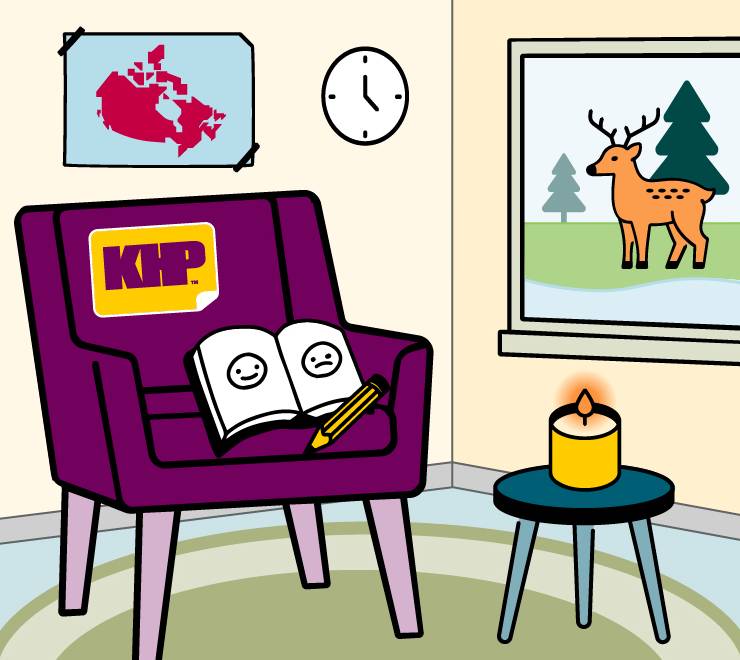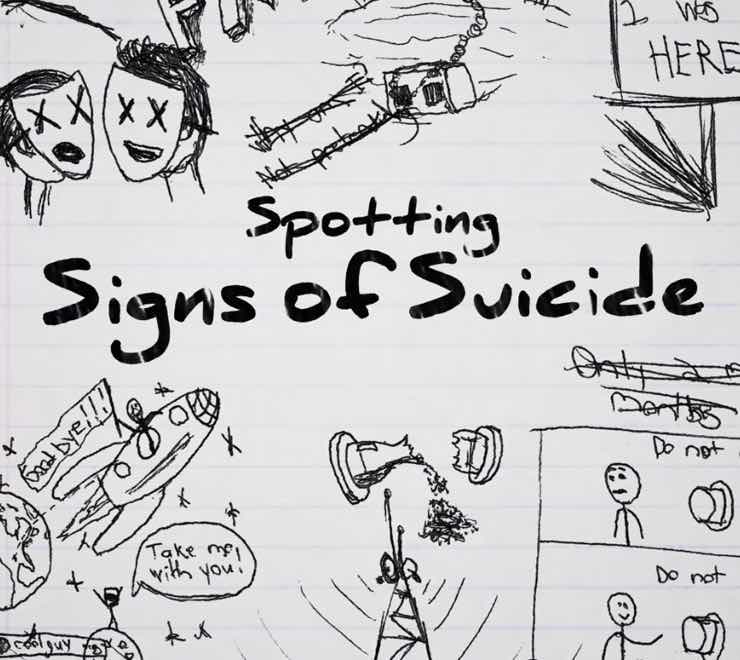Losing someone to suicide can be heartbreaking. It’s common to feel like your world was turned upside down if someone in your life died by suicide. You may feel lost and unable to understand the decision that the person made. You may even feel angry at the person who died. Here, Kids Help Phone shares information to help better understand how you may be feeling and offers tips for healing.
Stigma and misinformation around suicide can make it difficult to understand. People who experience the loss of a loved one to suicide often share that it leaves them with many questions and emotions. They can feel sadness, confusion, hurt, shock, anger and despair (to name a few). It may help to know that these are all common responses to grief and losing someone to suicide. Some people also feel guilty — thinking they should have been able to stop the person or recognize the warning signs. When someone you care for dies by suicide, it’s never your fault.
Your grieving journey is unique
Grief is a very difficult experience and the pain of losing someone to suicide can show up in different ways. You may feel up one minute and down the next. After losing someone to suicide, people may experience nightmares, trouble focusing, and even have thoughts of suicide themselves. Grief can lead to depression and post-traumatic stress disorder (PTSD) that can impact your day-to-day life. Things like culture, spiritual beliefs, family background, coping skills and previous losses you’ve experienced can also influence grief.
Remember, every person reacts to death differently, and there’s no right or wrong way to grieve. Grieving is a process that takes time. Your feelings are valid and there are ways to cope with the pain.
If you or someone you know is experiencing feelings of hopelessness and/or suicidal thoughts, it’s important to remember that help is available. You can connect with Kids Help Phone’s professional counsellors and volunteer crisis responders for 24/7 mental health support.
You can also call or text 9-8-8, a 24/7 confidential national suicide crisis helpline for support.
Working through grief
Talking to a counsellor can be a helpful way to work through your feelings and grief. You can also do things like:
- reach out to a safe adult, close friend or family member to share how you’re feeling
- find a support group to connect with other survivors and people with similar experiences
- learn about other young people’s experiences through the Peer-to-Peer Community at Kids Help Phone
- process your thoughts and feelings through letter writing or journaling
- establish a routine and focus on sleep and nutrition
- practise mindfulness techniques like deep breathing or a body scan
- allow yourself to remember the person who died by suicide — celebrate the moments you shared together
- participate in activities that you enjoy and bring meaning to your life
There’s no timeline for grief. It’s OK to experience setbacks and understand that some days will be easier than others. You’ll never forget the person you lost. And, as time passes, you will start to feel better. It’s not that you’re leaving the person behind — it’s that you’re moving forward and keeping them in your life in a different way. While it’s common to think that the pain will stay forever, healing is a journey and things will get better.
Resources to support your journey
You can learn more about coping with suicide loss and find support groups through the Canadian Association for Suicide Prevention.
Related information from Kids Help Phone
If you’re looking for support on your grieving and healing journey, Kids Help Phone is here for you 24/7. Our professional counsellors and volunteer crisis responders are trained to support you with any topic on your mind.
















